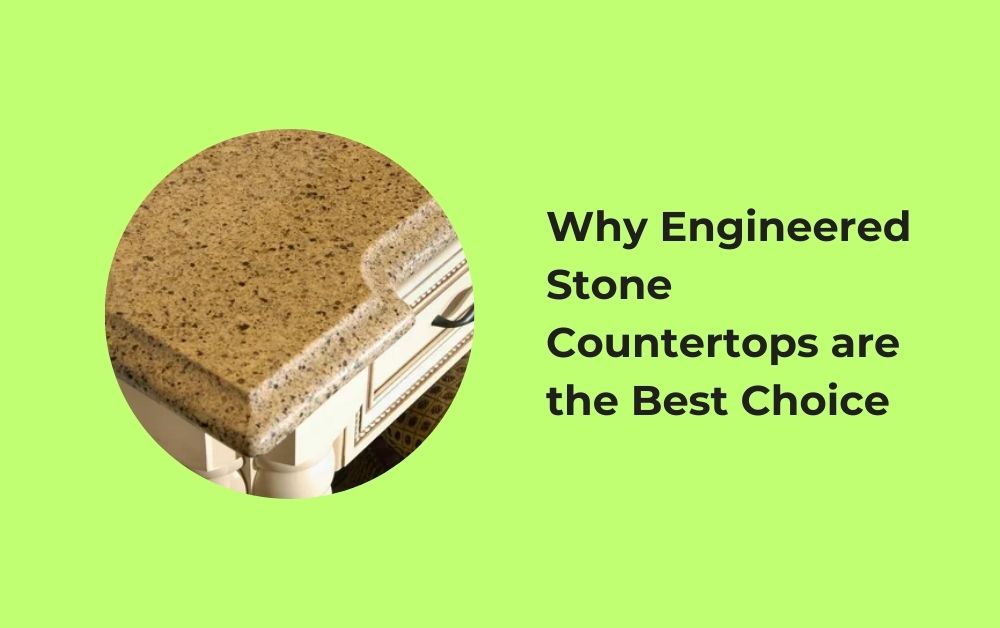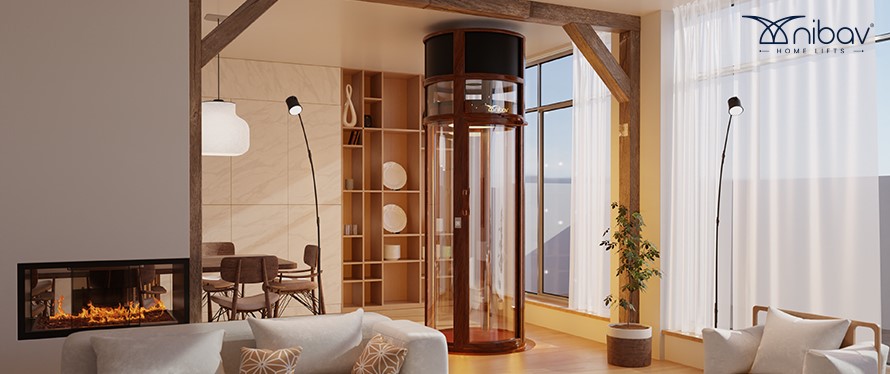Countertops for your kitchen or bathroom, there are many options available. However, engineered stone countertops stand out as one of the best choices. They combine beauty, durability, and functionality in a way that few other materials can match. In this blog, we will explore why engineered stone countertops are the best choice for your home. We will look at their features, benefits, and how they compare to other materials.
What are Engineered Stone Countertops?
Understanding Engineered Stone
Engineered stone is a man-made product that consists of natural stone particles bound together with resins. The most common types of engineered stone are quartz countertops. These countertops are made by mixing quartz crystals with resins and pigments to create a hard, durable surface.
Note – Ready to transform your kitchen or bathroom? Discover the elegance, durability, and low maintenance of engineered stone countertops. Perfect for any style, these countertops offer unmatched beauty and functionality. Upgrade your space today with a choice that blends practicality and luxury. Contact us now to explore our stunning range of engineered stone countertops and find the perfect fit for your home!
The Manufacturing Process
The manufacturing process of engineered stone involves mixing approximately 90-95% crushed natural stone with 5-10% resins, polymers, and pigments. This mixture is then compacted under intense vibration, vacuum, and pressure to form dense, non-porous slabs. These slabs are then cured, cut to size, and polished to create a finished product.
Types of Engineered Stone
There are several types of engineered stone, with quartz being the most popular. Other types include marble and granite composites, which use similar manufacturing processes but with different stone particles. Each type offers unique characteristics and benefits.
Benefits of Engineered Stone Countertops
Durability
One of the biggest advantages of engineered stone countertops is their durability. These countertops are incredibly hard and resistant to scratches, chips, and cracks. This makes them an excellent choice for high-traffic areas like kitchens and bathrooms.
Non-Porous Surface
Engineered stone countertops have a non-porous surface, meaning they do not absorb liquids. This makes them highly resistant to stains from common household items like wine, coffee, and oils. The non-porous nature also makes them more hygienic, as they do not harbor bacteria and mold.
Low Maintenance
Unlike natural stone countertops, which require regular sealing and maintenance, engineered stone countertops are very low maintenance. They do not need to be sealed and can be easily cleaned with mild soap and water. This makes them a practical choice for busy households.
Aesthetic Appeal
Engineered stone countertops come in a wide variety of colors, patterns, and finishes. This allows homeowners to find a style that matches their personal taste and complements their home decor. The consistent patterning of engineered stone also provides a uniform look that many people find appealing.
Heat and Chemical Resistance
Engineered stone countertops are resistant to heat and chemicals. This means they can withstand hot pots and pans, as well as common household cleaners, without getting damaged. However, it is still recommended to use trivets and cutting boards to prolong the life of your countertops.
Comparison with Other Countertop Materials
Natural Stone Countertops
Natural stone countertops, such as granite and marble, are beautiful and unique. However, they have some drawbacks compared to engineered stone. Natural stone is porous, meaning it can absorb liquids and stain easily. It also requires regular sealing and maintenance. Additionally, natural stone can be more prone to chips and cracks.
Laminate Countertops
Laminate countertops are a budget-friendly option. They come in a variety of colors and patterns but lack the durability and aesthetic appeal of engineered stone. Laminate is also more susceptible to scratches, burns, and water damage. Over time, laminate countertops can peel and warp, making them less durable than engineered stone.
Solid Surface Countertops
Solid surface countertops, like Corian, are another popular choice. They are non-porous and come in many colors and patterns. However, they are not as durable as engineered stone and can be scratched or damaged by heat. Solid surface countertops are also generally more expensive than laminate but can be comparable in price to lower-end engineered stone options.
Tile Countertops
Tile countertops offer a unique look and can be customized with various colors and patterns. However, the grout lines between tiles can be difficult to clean and are prone to staining. Tiles can also crack or chip over time, making them less durable than engineered stone. Additionally, the uneven surface of tile countertops can make food preparation more challenging.
Installation and Cost
Professional Installation
Engineered stone countertops should be installed by professionals to ensure a proper fit and finish. The installation process involves measuring, cutting, and securing the slabs to your cabinetry. Professional installation also includes creating cutouts for sinks, faucets, and cooktops, as well as ensuring that seams are minimized and well-hidden.
Cost Considerations
The cost of engineered stone countertops can vary based on the brand, color, and complexity of the installation. While they are generally more expensive than laminate and tile countertops, they are more affordable than some high-end natural stone options. The durability and low maintenance of engineered stone make them a cost-effective choice in the long run.
Value for Money
When considering the overall value, engineered stone countertops offer a great return on investment. Their durability, low maintenance, and aesthetic appeal make them a long-lasting and attractive addition to any home. Additionally, the non-porous surface and resistance to stains and bacteria contribute to a healthier living environment.
Environmental Impact
Eco-Friendly Manufacturing
Many manufacturers of engineered stone countertops are committed to environmentally friendly practices. The production process often includes using recycled materials, reducing waste, and minimizing energy consumption. Some brands even offer products that are certified as environmentally sustainable.
Longevity and Durability
The long lifespan of engineered stone countertops also contributes to their eco-friendliness. By choosing a durable material that does not need to be replaced frequently, you can reduce the environmental impact associated with manufacturing and disposing of countertops.
Low Emissions
Engineered stone countertops typically emit low levels of volatile organic compounds (VOCs), which are harmful chemicals that can affect indoor air quality. This makes them a safer choice for your home and the environment.
Choosing the Right Engineered Stone Countertop
Assess Your Needs
Before selecting an engineered stone countertop, consider your specific needs and preferences. Think about the level of use your countertops will receive, the style of your home, and your budget. Understanding your priorities will help you choose the best option for your space.
Explore Different Brands
There are many brands of engineered stone countertops, each offering a range of colors, patterns, and finishes. Research different brands and compare their products to find the one that best meets your needs. Some popular brands include Caesarstone, Silestone, and Cambria.
Consult with Professionals
Consulting with professionals can help you make an informed decision. Kitchen and bath designers, contractors, and countertop specialists can provide valuable insights and recommendations based on your specific requirements. They can also help you navigate the installation process and ensure that you get the best results.
Conclusion
Engineered stone countertops are an excellent choice for any kitchen or bathroom. They offer a perfect blend of beauty, durability, and low maintenance, making them a practical and stylish addition to any home. Whether you are renovating your existing space or building a new one, consider engineered stone countertops for their many benefits.
For more insightful articles related to this topic, feel free to visit theguestbloggers




